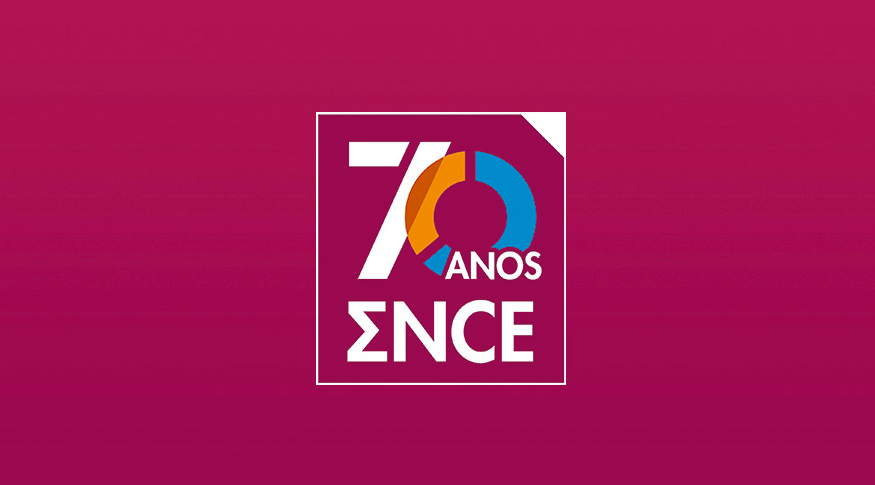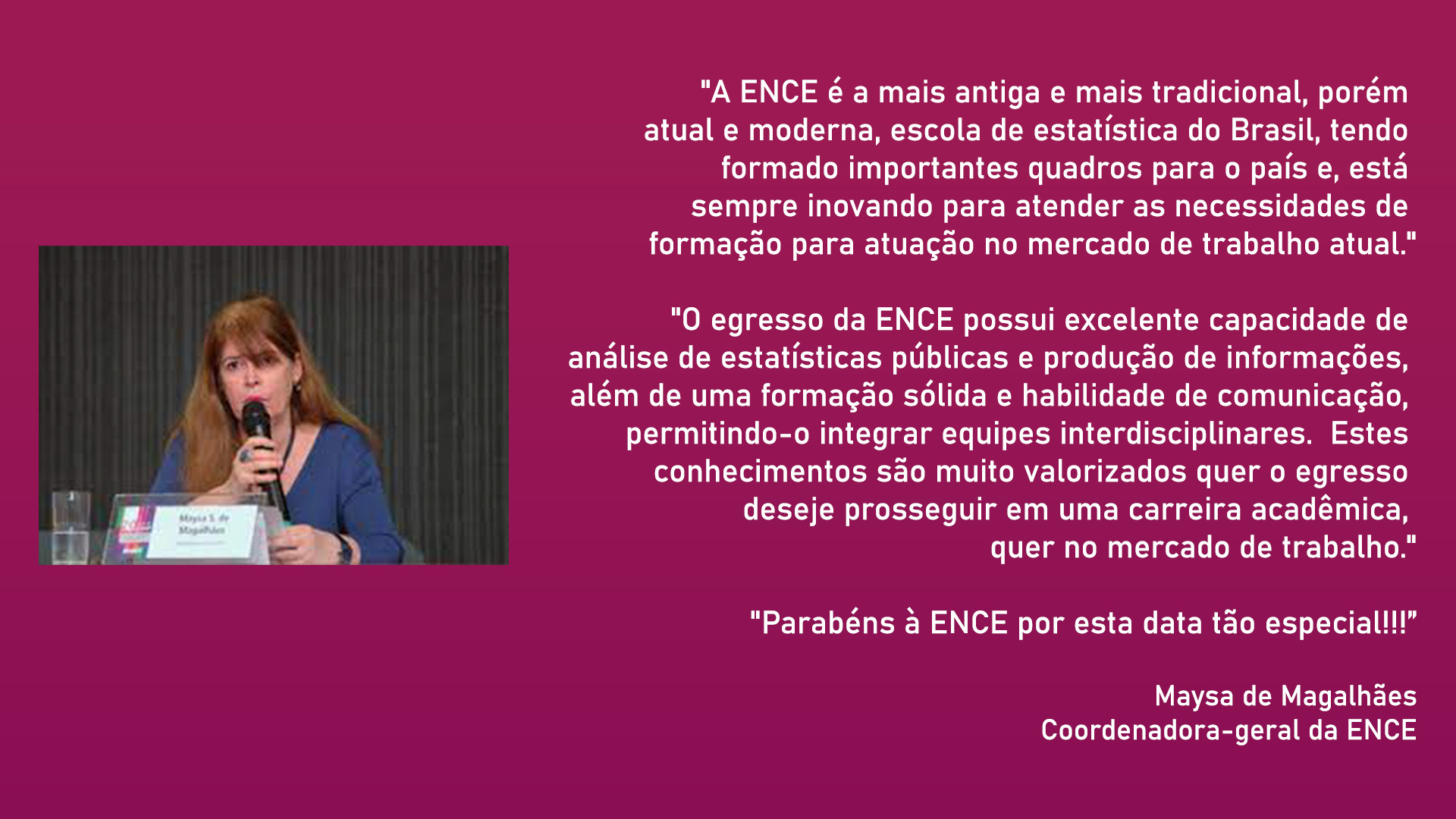National School of Statistical Sciences
ENCE completes 70 years with more than 2 thousand professionals graduated
March 06, 2023 10h31 AM | Last Updated: March 06, 2023 03h32 PM

The National School of Statistical Sciences (ENCE) completes 70 years this Monday, March 6, 2023. Founded in 1953, it is a Federal Higher Education Institution (IFES) and part of the IBGE structure. ENCE created the first Bachelor´s in Statistics in Latin America, which has already graduated more than 2 thousand statisticians since then.
Besides undergraduate, the School provides the courses of Master and PhD in Population, Territory and Public Statistics, as well as of Specialization in Environmental Analysis and Territory Management. ENCE is also responsible for training IBGE servants.
Maysa de Magalhães, ENCE´s General-Coordinator, highlights that, even as a small institution compared with other Brazilian IFESs, the School remains alive due to its modernization capability. “ENCE gets modernizing, it faces the challenges. And it gets growing. If it stood still, it could have finished,” says her.
Training and postgraduate step up ENCE´s modernization
The growth referred by Magalhães accelerated from 1995 onwards, with the creation of the Coordination of Training and Improvement (CTA), responsible for creating, planning and implementing training and development policies for servants. Only last year, that sector trained 58.8 thousand people, taking into account the activities related with the 2022 Census.
The coordinator explains that the CTA has a staff of multidisciplinary professionals. “These professionals develop, implement and monitor actions of extension and training aimed at IBGE servants. Likewise, they also reach other public servants through the Government Schools network, as well as courses aimed at the society.”
Besides its academic functions, ENCE also performs the role of a Government School. They are institutions that foster the graduation, improvement and professionalization of public agents aiming at strengthening and improving the capacity of the government. They train both the servants of the institutions they are linked, like ENCE in relation to the IBGE, and those of the public service in general.
Magalhães also highlights the creation of the Specialization Course in 1997 and the Master´s Course in the following year, as two important milestones for the modernization of ENCE. On the other hand, the PhD Course was approved in 2014, after a long process started in 2011 with the creation of a commission to submit a project. Considering Specialization, Master´s and PhD, the School has already qualified more than 700 postgraduate people.

ENCE: IBGE´s academic arm
The National School of Statistical Sciences distinguishes itself from the universe of other Brazilian IFESs as it is linked with the IBGE. According to Maysa de Magalhães, ENCE was created aiming not only at training for the society, but also for the IBGE.
“ENCE belonging to the IBGE is a huge differential. For us and for the students. It is the biggest producer of official statistics in Brazil,” notes her. For her, the fact that the IBGE technical staff can work as collaborators, either at the classroom or mentoring students, allows to share professional experiences and improves the perspectives of partnerships.
And it also occurs in the modernization process. An example is the use of big data and data science. The emergence of new models and needs caused by that “data flood” and a demand for very fast answers are, according to Magalhães, a challenge both for ENCE and for the IBGE.
Therefore, the School hosts and coordinates the Regional Hub for Big Data in Brazil since April 2021, supporting the United Nations Global Platform, as a result of a partnership with the United Nations Department of Economic and Social Affairs (UNDESA/SD).
“Big data is a reality, and data science is one of the most important areas in this context. Through its projects and activities, the Regional Hub in Brazil will improve the integration of the sectors of the IBGE and institutional partners in Latin America and the Caribbean by sharing knowledge and innovation,” notes ENCE´s general-coordinator.
From 2016 onwards, a new school program was implemented for undergraduation. For the coordinator, the current structure takes the course closer to the new paradigms of the society. The School expects to receive 418 undergraduation students in the first semester of 2023. In addition, 39 students are in the Specialization, 27 in the Master´s and 36 in the PhD.
For Magalhães, “the capacity of growing, modernizing and being in-line with the new times is one of the things that defines ENCE.”




















